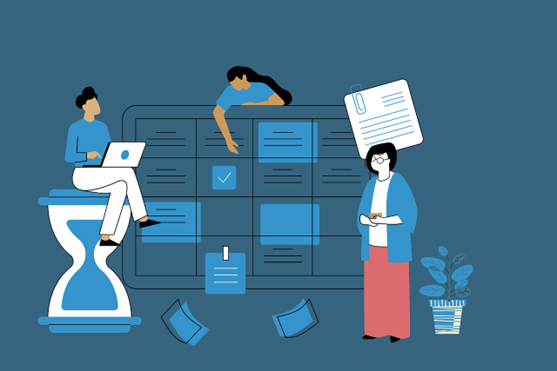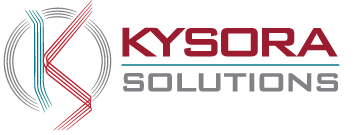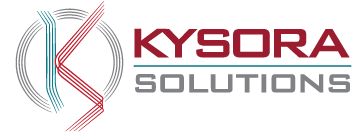The Future of Work: How AI is Changing the Job Landscape

The future of work is upon us, and it’s being shaped by the rise of artificial intelligence. As AI technology continues to evolve, many jobs that were once considered secure are now at risk of being automated. This shift is causing many people to wonder what the job landscape will look like in the coming years. Will robots replace human workers, or will they work alongside them? The truth is, AI is already changing the way we work, and the impact will only increase in the years to come. But it’s not all bad news. AI is also opening up new opportunities for workers, creating jobs that never existed before. In this article, we’ll explore the ways in which AI is changing the job landscape and what it means for employees and employers alike. So, buckle up and get ready to take a glimpse into the future of work.
The impact of AI on the job market
The impact of AI on the job market is already being felt. According to a report by the McKinsey Global Institute, up to 375 million people worldwide may need to switch occupational categories and learn new skills by 2030 due to the adoption of AI and other automation technologies. However, it’s not just low-skilled jobs that are at risk. High-skilled jobs, such as those in finance, law, and medicine, are also being impacted by AI.
One of the biggest impacts of AI on the job market is its ability to automate routine and repetitive tasks. This includes jobs such as data entry, customer service, and even some aspects of journalism. As AI technology continues to improve, it’s likely that more jobs will become automated. This may lead to job losses in certain industries, but it will also free up workers to focus on more complex and creative tasks.
Another impact of AI on the job market is its ability to create new job roles. As AI technology becomes more prevalent, new job roles are emerging that never existed before. These include roles such as AI trainers, data analysts, and automation specialists. These roles require a different set of skills than traditional jobs, and it’s important for workers to adapt and learn these new skills in order to stay relevant in the job market.
Advantages of using AI in the workplace
While the impact of AI on the job market may seem daunting, there are also many advantages to using AI in the workplace. One of the biggest advantages is its ability to improve efficiency and productivity. AI can automate routine and repetitive tasks, freeing up workers to focus on more complex and creative tasks. This can lead to increased productivity and a better use of resources.
Another advantage of using AI in the workplace is its ability to improve decision-making. AI can analyze large amounts of data and provide insights that would be difficult for humans to see. This can help businesses make better decisions and improve their bottom line.
AI can also improve customer service. Chatbots, for example, can provide customers with quick and accurate responses to their queries. This can help improve customer satisfaction and loyalty.
Types of jobs that will be affected by AI
AI will impact different jobs in different ways. Some jobs will be completely automated, while others will be augmented by AI. Here are a few examples of jobs that will be affected by AI:
- Transportation jobs: Self-driving cars and trucks may lead to job losses for drivers.
- Manufacturing jobs: Robots can be used to perform tasks such as welding and painting, leading to job losses for factory workers.
- Healthcare jobs: AI can be used to analyze medical images and assist with diagnosis, leading to new job roles such as medical image analysts.
- Legal jobs: AI can be used to review legal documents and assist with research, leading to new job roles such as legal automation specialists.
It’s important for workers to understand how their job may be impacted by AI and to adapt accordingly.
The role of AI in recruitment and hiring
AI is also being used in recruitment and hiring. AI-powered tools can help streamline the recruitment process by analyzing resumes and identifying the best candidates for the job. This can save recruiters time and improve the quality of candidates.
However, there are also concerns around the use of AI in recruitment. AI tools may have biases built in, leading to discrimination against certain groups of people. It’s important for recruiters and employers to be aware of these biases and to take steps to eliminate them.
Skills needed for the future job market
As the job market changes, so too do the skills needed to succeed. Here are a few skills that will be important in the future job market:
- Digital literacy: As AI and other technologies become more prevalent, workers will need to be comfortable using digital tools and platforms.
- Creativity: As routine tasks become automated, there will be a greater emphasis on creative thinking and problem-solving.
- Flexibility: Workers will need to be adaptable and willing to learn new skills as the job market changes.
- Emotional intelligence: As AI takes over routine tasks, there will be a greater emphasis on soft skills such as empathy and emotional intelligence.
Preparing for the future of work with AI
To prepare for the future of work with AI, workers need to be proactive about learning new skills and adapting to new technologies. This may involve taking online courses, attending workshops, or even pursuing advanced degrees. It’s also important for workers to stay up-to-date on industry trends and to network with others in their field.
Employers can also play a role in preparing their workers for the future of work. This may involve providing training and development opportunities, offering flexible work arrangements, and fostering a culture of innovation and adaptability.
Ethical considerations of AI in the workplace
As AI becomes more prevalent in the workplace, there are also ethical considerations to take into account. One of the biggest concerns is around job displacement. If large numbers of workers are displaced by AI, there could be serious social and economic consequences. It’s important for employers and policymakers to consider these consequences and to take steps to mitigate them.
Another ethical concern is around bias in AI. AI tools may be trained on biased data, leading to discrimination against certain groups of people. It’s important for employers and policymakers to be aware of these biases and to take steps to eliminate them.
AI tools for remote work and collaboration
One area where AI is already being used is in remote work and collaboration. AI-powered tools can help facilitate communication and collaboration between remote teams. For example, virtual assistants can schedule meetings and send reminders, while chatbots can provide quick answers to common questions.
AI can also be used to improve the quality of remote meetings. AI-powered tools can analyze video and audio feeds to provide feedback on factors such as body language and tone of voice. This can help remote teams communicate more effectively and build stronger relationships.
Conclusion: Embracing the future of work with AI
The future of work is being shaped by AI, and it’s important for workers and employers alike to embrace this change. While there are concerns around job displacement and bias, there are also many advantages to using AI in the workplace. AI can improve efficiency, productivity, and decision-making, and it can open up new job opportunities that never existed before. By staying ahead of the curve and adapting to new technologies, workers and employers can thrive in the future of work with AI.
AI Artificial Intelligence machine learning workplace of the future
- by rajeev.devalall
- on May 5, 2023

